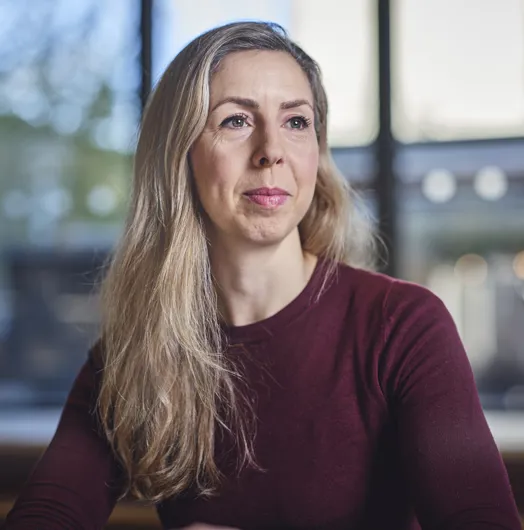What skills and experience are shipping companies like Clarksons looking for when they are recruiting new talent? While technical ability in mathematics or languages are a plus, when talking to the women at Clarksons they felt there were other, non-academic skills which were equally as (if not more) important when it comes to having a successful career in shipping.
There is no one set pathway into a career in shipping. Unlike many other professions which have a clear, well-defined educational/training route into the profession – such as medicine, engineering, or accounting – shipping is a lot more flexible.
Core skills

Everyone we spoke to described themselves as a ‘people person’, highlighting this as one of the key reasons they find their job so enjoyable, as well as being one of their skills which makes them good in their role. As Victoria put it: “I think a career in this industry suits me because I am a people person and I enjoy building relationships and making connections with people and that is what the essence of broking is about.” Sonia agreed saying broking is ”all about adapting to your client and making them want to talk to you” and Catriona shared a similar view saying a key part of the job is “calling your clients and getting to know them as friends”.

Shipping is responsible for keeping global trade moving, meaning the industry is international by its very nature. This element of the job was a big draw for some of the women we spoke to, including Catriona who said, “the career appealed to me because of the travel”. Sonia agreed, adding: “you will always meet people from different parts of the world and often have to live in many places. I have been good at adapting. I believe that is one of my greatest qualities that got me into broking”.

One thing that came across loud and clear from everyone that we spoke to was that a career in shipping is much more than ‘just a job’. As Maren put it, working in shipping it soon becomes clear that “this is an office job with a whole lot more to it than just sitting behind a desk.” Liza echoed this sentiment saying she was excited that she “wouldn’t be following the same path of many graduates as management consultants etc.”

While those who excel in a shipbroking career need to possess a number of soft skills, there’s no doubt that it also requires an analytical mind. Liza said this was one of the things which attracted her to the industry, saying “I was interested in the complexity and problem solving of the logistics involved”. Catriona also spoke about how important it is to “enjoy the technical aspects of the job.”

Most of the shipbrokers we spoke to mentioned that client entertainment is a key part of the job role and how enjoying this is therefore very important. This often involves working outside of traditional office hours, entertaining clients during evenings and weekends and sometimes even travelling internationally. Catriona said, “I think I would not have been as successful if I didn’t enjoy entertaining” and Liza echoed this saying “I think being able to meet people in different surroundings and talk comfortably to people I don’t know has been vital.”

When asked why she thinks she has been so successful in her career, Petra answered “It sounds simple but being reliable and always consistent with my work and approach meant overtime I gained the respect from larger clients and that meant people heard about me and therefore trusted me more or believed in me more.” Angela’s response was similar citing the fact she is “very much devoted and extremely hard working” as a key factor in her continued career success.

A key theme which came up in our conversations was the value of mentorship. A number of women we spoke to mentioned the people who helped them when they were starting out, highlighting the significant role this kind of professional relationship can be in developing a successful career.
For some people this was a specific person: Emily named Janet Sykes at the Baltic Exchange for being instrumental in her career while Catriona said, “When I joined Clarksons, Michael Knowelden trained me – he was patient thorough and is an amazing teacher.” It was a similar story for Natalia who said “I am here today because of David Kelly. He introduced me to the shipping world and patiently taught me the basics. Although it’s been years since we worked together, he’s still teaching me things and giving me advice.”
For others, they noted the supportive culture at Clarksons to have provided a natural form of mentorship. Angela, for example said “I had many people in Clarksons that I looked up to and they helped me a lot to reach where I am today” while Liza said “In my early career I had some very supportive colleagues who helped to educate and guide me. My former boss before joining Clarksons was hugely supportive and took great care to help me develop my skills and confidence.” Petra echoed this saying “I have had many mentors within Clarksons that stretch across multiple sectors. Not official mentors as such, but many people I feel I can call and speak to or ask advice on.”
A Clarksons career is fast paced, rewarding and full of potential. With global reach, we offer a wide range of job opportunities across multiple business areas. If you have an enquiring mind, team spirit and a determination to make a difference, we would love to hear from you.
Careers at Clarksons
A career as a shipbroker
More in this series

Discovering shipping
There are many different routes into shipping. From family backgrounds and careers fares, existing connections, dedicated qualifications to spontaneous opportunities that were too good to turn down. Hear from some of the women at Clarksons and how they came to know the industry.
Read more
A career in shipbroking
Meet the people at Clarksons who are pursuing a career as a ship broker. Find out more about the skills for success, getting started and opportunities available.
Read more
Broking career advice
Watch this short video and get advice from some of the women at Clarksons on how they navigated their careers, got started as trainees, and established themselves as brokers.



